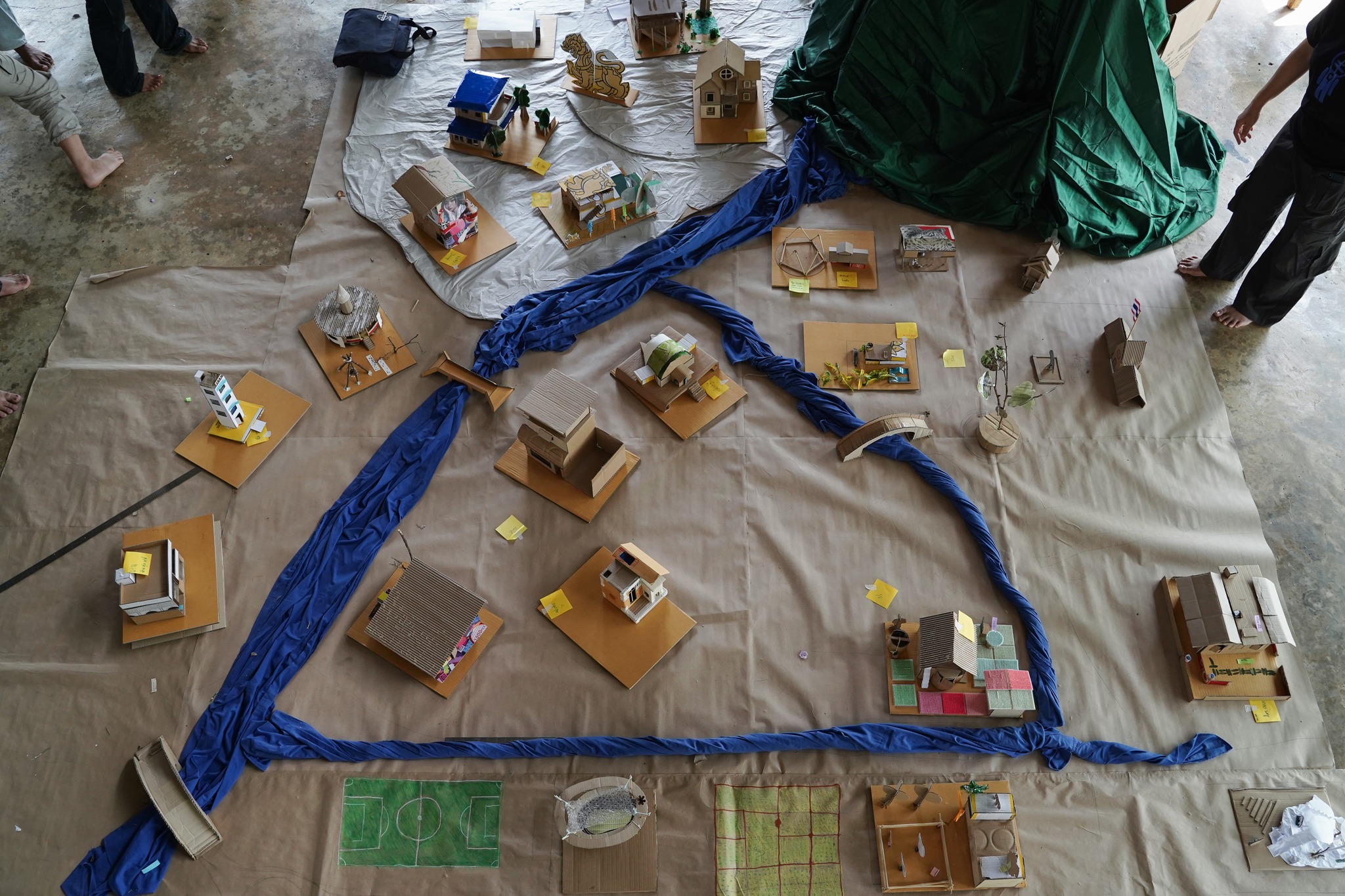In-Depth Overview
Theatre and Cultural Collaborations
Over the past five years, Makhampom Art Space has expanded its role beyond being a creative production house emerging as a powerful hub of community-based art, intercultural collaboration, and decolonial learning. Its partnerships span across local, regional, and global networks, involving a range of co-productions, artistic residencies, youth empowerment programs, and grassroots development work. These collaborations fall into several categories:
Co-productions (Artistic collaboration)
- Co-design & Co-curation (Shared process facilitation)
- Residency & Exchange (Artist/youth/volunteer mobility)
- Long-term Partnerships (Education & community systems)
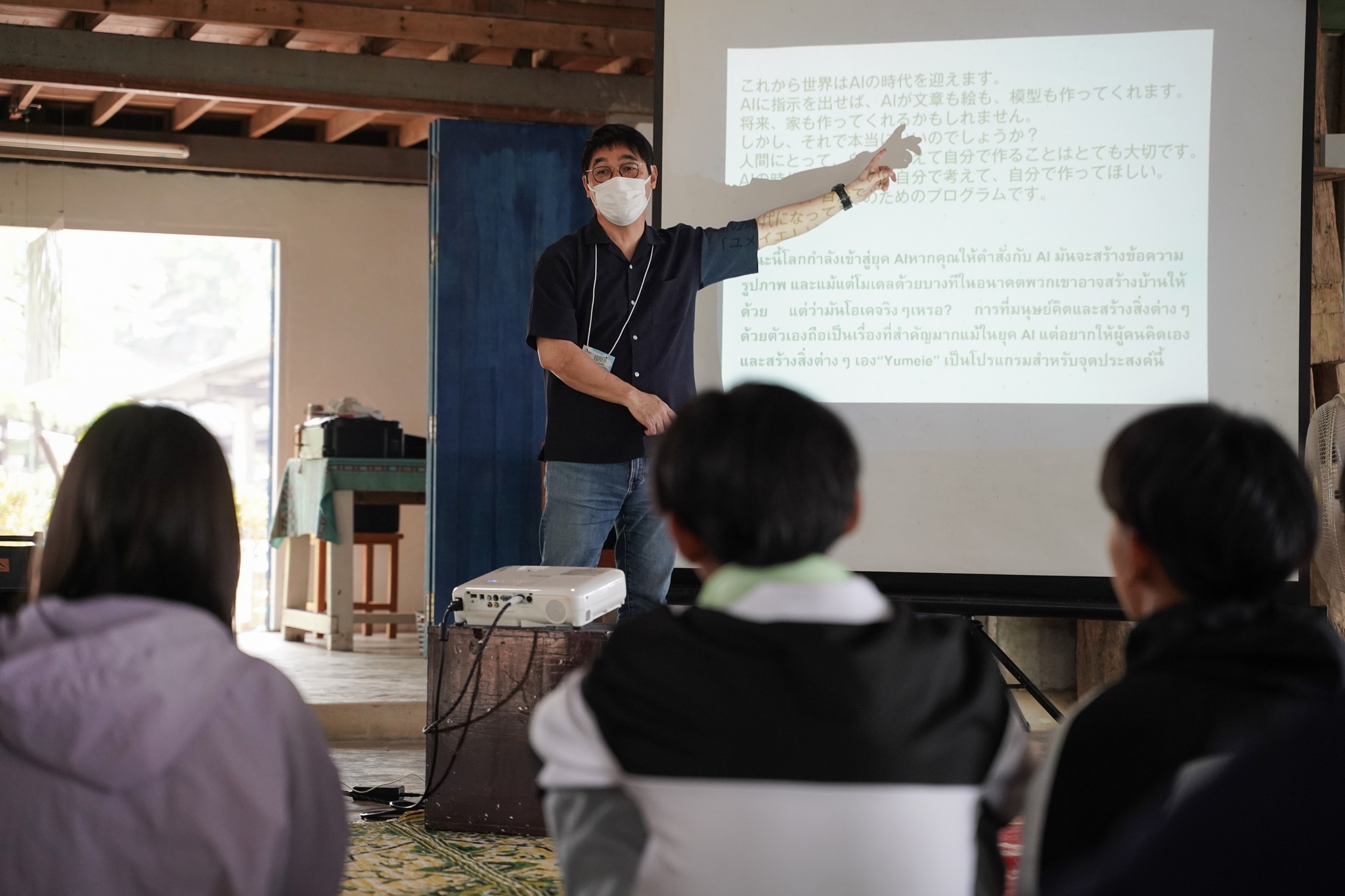
1. Artistic Co-Productions
The Overlapping (2024)
- Type: Dance & Video Arts Co-Production
- Collaborators: Queer performers, ethnic youth, AI researcher, community members
- Theme: Intersectionality across identity, gender, generation, labor and technology
- Highlight: Deep co-creation with marginalized voices from Chiang Dao
Dream Home (2025)
- Type: Thai–Japanese Collaborative Art Project
- Supported by: Japan Foundation
- Theme: Redefining “home” through performance, spoken word, and collaborative paper-based visuals
- Format: Youth-to-youth creative exchange, both online and on-site
Watch Me Breathe (2022)
- Type: Testimonial Theatre
- Collaborators: Rohingya refugees, ethnic communities from Myanmar
- Theme: Displacement, trauma, and silence under military regimes
- Approach: Performed through breath, gaze, and silence where voice was once denied
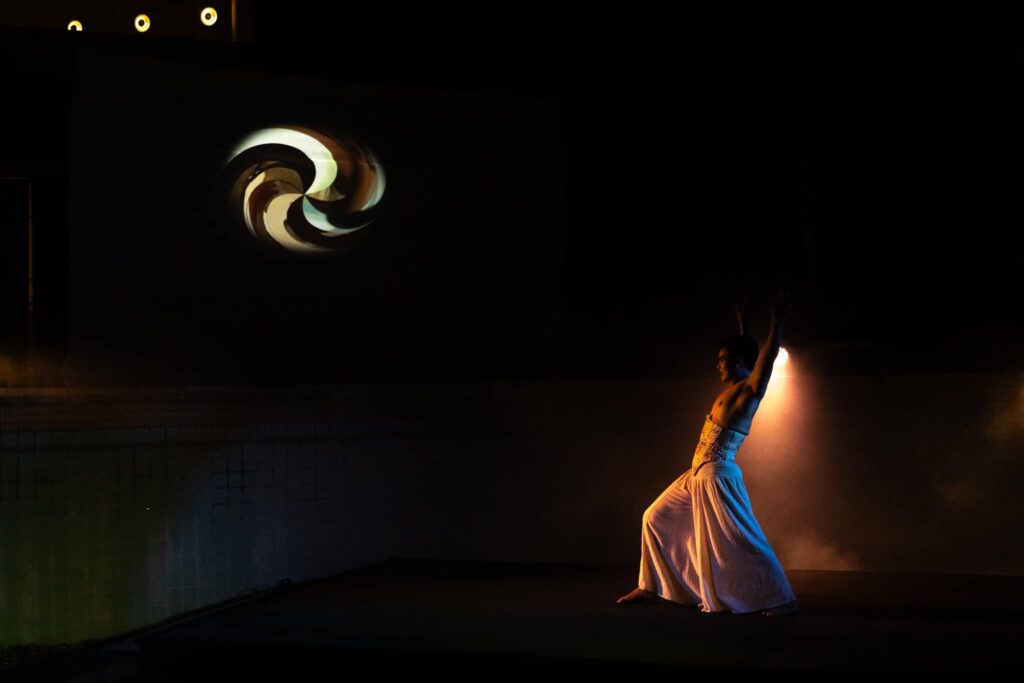
2. International Residencies & Exchanges
Toy Factory- Plot SEA Project (2024-2025)
- Partners: Singaporean and SEA performance artists + Chiang Dao local artists
- Format: 15-day co-residency
- Focus: Identity, co-existence, and Southeast Asian futures
- Method: Co-facilitated process-based performance within community settings
Tracing Roots (2023–2026)
- Type: Humanitarian volunteer program with creative arts
- Partners: European Solidarity Corps (ESC), local communities
- Focus: Youth empowerment, statelessness, and community-led resilience
- Outputs: Indigenous learning centers, gardens, participatory rituals
International Conference of Insecurity (Bern, Switzerland, 2021-2022)
- Partners: Artists from 7 countries
- Theme: Precarity across digital, social, and national structures
- Format: Multi-vocal performance and conceptual exploration
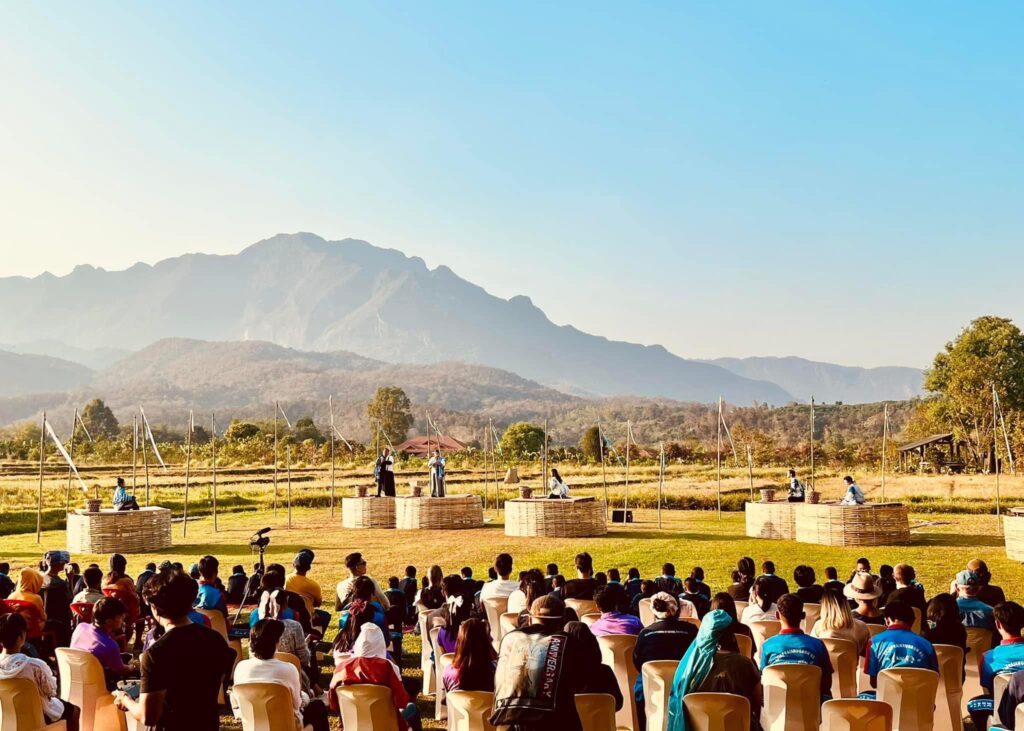
3. Collaborations with Arts and Cultural Institutions
BIPAM (2022)
- Event: Bangkok International Performing Arts Meeting
- Role: Production manager for “Ownership”
- Focus: Stateless artists from Chiang Dao reclaiming identity and space through performance
Japan Foundation
- Support Role: Funded and coordinated Dream Home project
- Contribution: Facilitated youth-led intercultural creation and touring
Goethe-Institut (Thailand & Southeast Asia)
- Emphasis: Artistic research, digital exchange, and intercultural storytelling
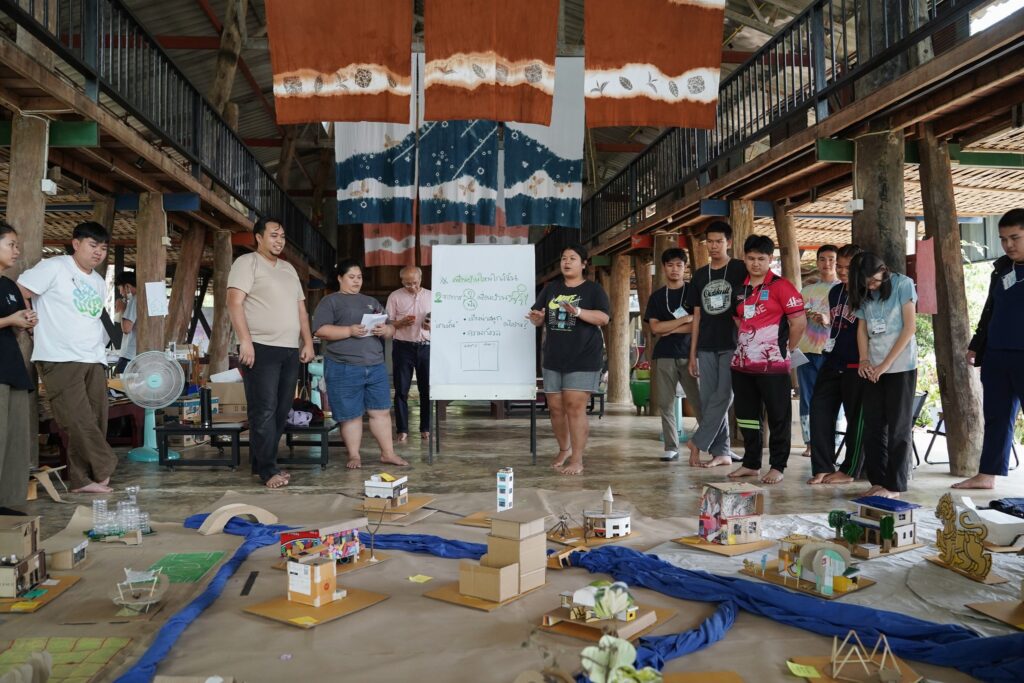
4. Local Collaborations: Schools & Communities in Chiang Dao
Learning Stations: Chiang Dao Learning City
- Partners: 8 local schools, hill tribe communities, local education offices
- Initiative: Developed “learning stations” based on local wisdom
- Examples: Organic farming gardens, Natural dyeing workshops, Ceramics for healing and Shamanic storytelling labs.
- Approach: Integrated SDGs, IB curriculum, and hands-on community-based education
Youth Theatre for Transformation
- Partners: Terre des Hommes, Thai civil society networks
- Focus: Empowerment of marginalized youth (stateless, LGBTQ+, ethnic) through theatre camps and dialogue forums
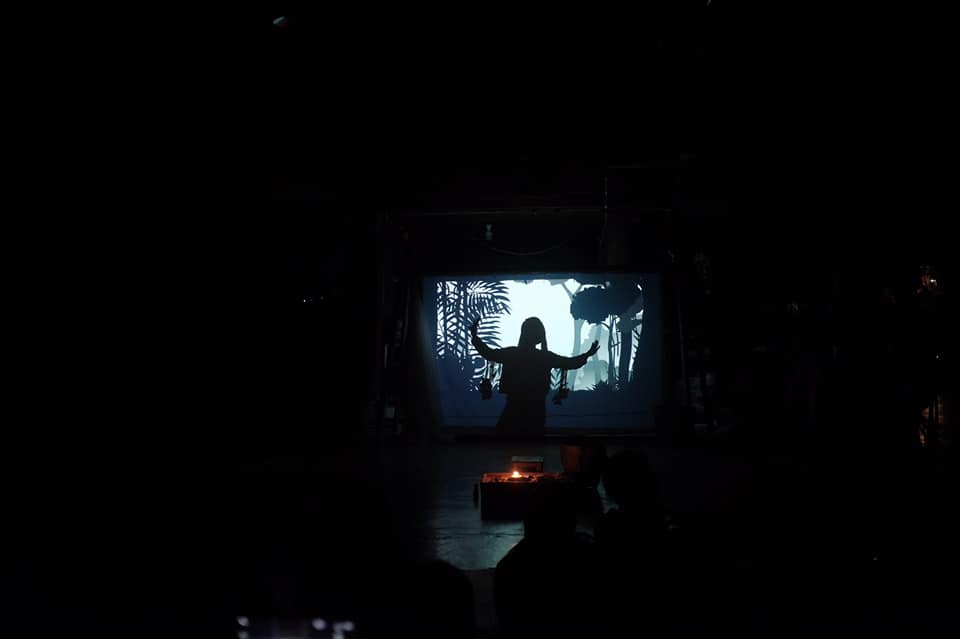
5. Art as Public Protest & Civic Expression
Ra-Ta-Pla-Phao: The Tragedy (2020–2021)
- Format: Protest performance in public spaces
- Collaborators: Chiang Mai art activists
- Theme: Political violence, collective grief, and reclaiming public narrative
Act Up Chiang Mai (Ongoing since 2019)
- Format: Transformative theatre festival
- Theme: Art Acts Listen – centering marginalized voices in civic discourse
- Audience: Artists, activists, youth leaders, and ordinary citizens
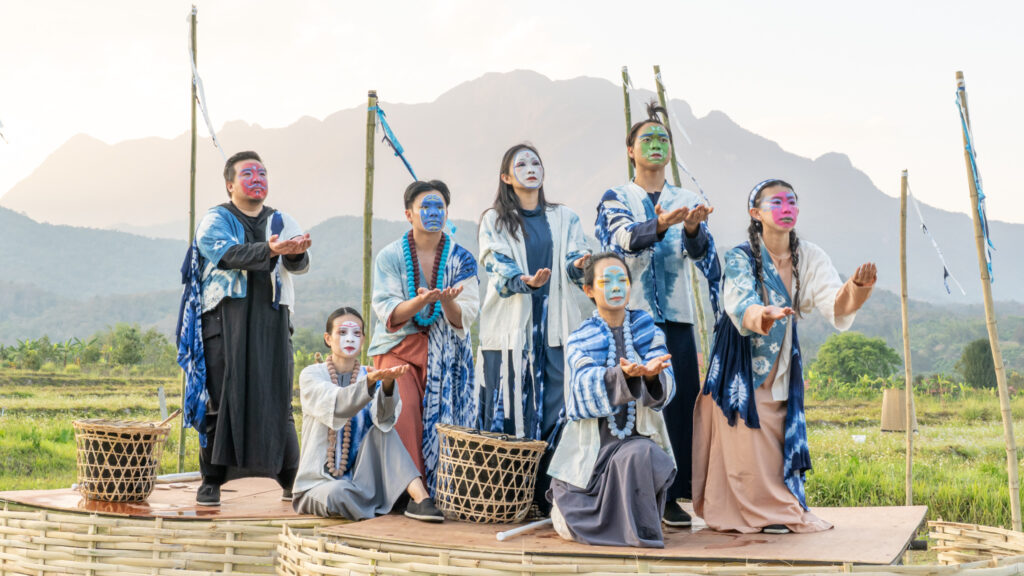
Strategic Insights
- Makhampom serves as a cultural bridge connecting local wisdom with global dialogues.
- Their collaborations emphasize horizontal partnerships; everyone involved is a co-creator, not a recipient.
- Their strength lies in localizing global tools to amplify community voice and ownership.
- Their impact goes beyond art; it reshapes structures of learning, power, and solidarity.
